This year, there was some feeling of nostalgia about May 29 as Nigeria’s Democracy Day. When a few persons called me to ask if there were special plans for Democracy Day on May 29, I had to remind them that Democracy Day was now June 12. On June 6, 2018, President Buhari proclaimed June 12 as the new Democracy Day. I guess with time, Nigerians will get used to the new order, and June 12 will “take root” firmly as new Democracy Day. Hopefully no government will show up in the future to reverse what may well be remembered as one of the good deeds of President Muhammadu Buhari. As events turned out, on May 29, this year, many state governors marked either their first or fifth year in office; other states talked about Democracy on June 12. Ahead of June 12 itself, the Federal Government released a document outlining the achievements of the Buhari administration in five years. On June 12, President Buhari addressed the nation. Other political leaders issued statements. But there was no celebration as we knew it. The entire country had been overtaken by the COVID-19 pandemic, with its social distancing, physical distancing, new normal regimental orders. The deadly disease overshadowed everything. As at May 29, 2020, Nigeria had recorded 8, 915 confirmed cases of Corona Virus with 259 deaths.
By Friday, June 12, the number of cases in Nigeria had jumped to 14, 554 cases, with 387 fatalities. The total number of new cases rose to 681. This coincided with the disclosure that the report of the Economic Sustainability Committee chaired by Vice President Professor Yemi Osinbajo had projected a loss of 39.4 million jobs by December 2020 (an unemployment rate of 39.4%), a monthly revenue loss of N185 billion, a sharp fall in GDP rate, with many Nigerians likely to slide into extreme poverty. Twenty-one years after our return to civilian rule and 27 years after June 12, 1993, Nigeria is firmly at a cross-road. It is easy to blame the COVID-19 pandemic which since the first index case was reported in the country on February 27 has kept everything on hold.
But if anything, what COVID-19 has done is to expose macro-level governance issues in Nigeria. May 29 or June 12, each with its own symbolism, both provide an opportunity for government at all levels to give account and submit a report card to the people. This was what President Buhari did in his June 12 national broadcast. Many took that speech with a pinch of salt. A few state Governors used the occasion of their first or fifth year in office or the June 12 day to render account, but for the most part, many state governments did not even bother. Commentators were also distracted. The kind of rigorous assessment that was expected did not happen. But a few states made an effort. On May 29 and June 12, I observed an attempt by the Governors of the following states and their supporters and friends to engage the public: Lagos, Ogun, Bauchi, Yobe, Delta, Kebbi, Kano, Kwara, Sokoto,, Enugu, Borno, Oyo, Osun, Ekiti and Ondo. In addition, the Federal Capital Development Authority (FCDA), on June 12, published an advertorial titled “FCDA Continues to deliver on PMB’s Next Level Agenda”. The many claims made by these state governments need to be subjected to close interrogation and scrutiny. It is not enough to place adverts and congratulatory messages in the media: are the messages true? Are the claims verifiable? And those Governors hiding under the constraints of managing COVID-19 to sleep on the job, is anyone monitoring them closely? We often blame the Federal Government, but the real centres of failure can be found at the sub-national level. Before COVID-19 governance was a major source of anxiety in Nigeria. It is even more so now in the face of this man-eating pandemic, and will still be an issue hereafter.
It is not possible in a short newspaper commentary to attempt a review of the claims made by the aforementioned states in terms of service delivery to the people. For this reason, I have chosen to focus on just one state: Kwara. This particular state featured prominently during the last general elections in 2019. The main battle in the gubernatorial election in that state was between the All Progressives Congress (APC) which had as its candidate, Abdulrahman Abdulrasaq, and the Peoples Democratic Party (PDP) which fielded Abdulrazaq Atunwa. At the end of the election, Abdulrazaq, the former, was declared winner with a margin of 216, 792 votes to wit: 331, 546 votes (APC) to 114, 754 votes (PDP). The APC candidate won in all the 16 Local Government Areas of the state. The PDP alleged that the election was rigged but what happened was not just an election, it came across as a battle for the soul of the State.
For decades, Kwara politics had been dominated by the Saraki political family. That dominance was entrenched by Dr. Olusola Saraki, Senate Majority Leader in Nigeria’s Second Republic (1979 -1983) and the Godfather of Kwara politics for decades. In 2003, the immensely charismatic and popular Dr. Olusola Saraki “installed” his first son, Dr. Bukola Saraki as Governor of the state. The son will later replace the father as the Godfather of Kwara politics. The Saraki political machinery had a strong hold on the entire state, such that nobody could aspire to any position if such a person was not endorsed by the Saraki Godfather machinery. The ordinary people of Ilorin and other parts of the state depended on the Saraki family, and the man they called “Oloye” for their survival. Saraki, the father, did not disappoint them. His longevity as a power broker was a function of his mastery of populism and the common touch and his dexterity in building bridges to the centre.
In the 2019 general election, Dr. Bukola Saraki, the son who also became the Godfather, fell out with the ruling party at the centre, and back home, he and his chosen candidates faced a bigger opposition. The same APC machinery that Saraki had helped to strengthen in the state in 2015 was turned against him. The people were mobilized to reject the prevailing status quo. Atunwa was seen as Saraki’s candidate. He could well have had the making of a good Governor. But he stood no chance by association. The main slogan for that election was “O to o ge”. Literally, that was a statement of protest. It was an open rejection of the Saraki political dynasty and anything associated thereto. In a well-orchestrated, social media-driven advertisement of this protest, the people of Kwara were shown on the streets of Ilorin chanting and symbolically using the broom, the APC emblem, to sweep away the Saraki influence in Kwara politics. To an ordinary observer, something had changed. Saraki himself lost the February 23 Senatorial election.
But was that enough? Will the new man in the saddle deliver? Abdulrahman Abdulrazaq was sworn in on May 29, 2019. Before long, an open quarrel had broken out between the state government and the Saraki family, particularly Senator Bukola Saraki. By February 2020, the public was inundated with stories about how the Saraki family had taken illegal possession of plots of land meant for the public, and how Senator Saraki as Governor had similarly seized government properties across the state. It was a very messy affair. Dr. Bukola Saraki was at the same time facing pressure from Federal Government agencies. There was trouble chasing him around in Abuja. Back home in his state, the new Governor seemed determined to embarrass him. I wrote a piece at the time, and in the concluding paragraph, I advised that Governor Abdulrazaq should face the business of governance, because at the end of the day, he will be assessed on the basis of his achievements, not his ability to humiliate the Sarakis.
It looks like common sense eventually prevailed in the matter. I take special note of the fact that on May 29, the Governor of Kwara State was one of those Governors who had something to crow about. Of him, one Yahaya Seriki writes: “…the government of Abdulrazaq has brought to the state unprecedented developments whose demonstration is now found in the nooks and crannies of our state. There are not progressive claims; they are activities of physical verity. So far 56 percent of his cabinet is made up of women, first of its kind in Nigeria, and yet the most accentuated gender equality demonstration in the country as at present…his government refunded the 450 million naira that was allegedly diverted from the Universal Basic Education (UBE) funds by the previous government… over 8, 000 final years students from Kwara State across varying tertiary institutions in the country were duly paid their bursary…scholarship of 100, 000 Naira was earmarked to students of Kwara origin in law schools across the county and numerous primary and secondary education facilities being built, and some renovated… rehabilitation of Patigi waterworks…roads, healthcare facilities, sewage systems…” (The Nation, May 29, p. A5.).
Two weeks later, on June 12, in a three-page colour advert titled “Democracy Day and a Dawn of Impactful governance in Nigeria, sub-titled “Ise’nlo”, meaning “work is in progress” the Kwara State Government offered a pictorial account of the infrastructure provided by the Abdulrazaq government in Kwara State. (see THISDAY, June 12, pp 55- 57). We are also told: “Abdulrazaq lives in his own house, drives his own car, and inspires his team to be prudent and people-oriented. And he is never tired of talking to any member of the public…” The Governor’s media spokesperson, Rafiu Ajakaye in a piece titled “365 Days of Impactful Governance in Kwara would admit that “Kwara, for the record, is not yet an Eldorado. No such state exists.” But, he says, “the administration inherited and has rescued a state that once tottered on the brink of collapse – at least in the area of human capital development indices… just 12 months down the road, the Otoge leader has successfully exchanged the Kwara narrative. From instant payment of relevant counterpart funds, which have brought back development partners, and taken the state off the UBEC blacklist, Abdulrazaq is taking steps to stabilize and reposition the state for growth.” In yet another report, the Kwara State Director General of the Kwara State Bureau of Lands, Hon. Bolaji Edun, wrote in April, that Governor Abdulrazaq has signed 175 Certificates of Occupancy, and taken steps to strengthen the ease of doing business. I hope one or two of those 175 Certificates went the way of the Sarakis as a peace-making overture!
There are obvious lessons to be learnt from the Abdulrazaq story in Kwara state. Here is the example of a Governor who almost lost the plot by focusing on perceived enemies. His saving grace is that he changed track and tactics and chose to focus on what is important. That is why he has a story to tell one year after assuming office. Many Nigerian Governors simply do not know what they are doing. They are confused. COVID-19 is their come-uppance. It has exposed their ignorance and incompetence. There are Governors who are obsessed with petty squabbles, even over the management of COVID-19. They have nothing to show, nothing to celebrate, they call themselves “silent achievers.” I have a strong aversion to that phrase. If the achievement is loud enough, everyone will see it. Nigeria faces a big challenge at the sub-national level. With the survival challenges that COVID-19 has brought upon us, the Nigerian people must indeed “take responsibility” and that includes holding those who lead us to account. It is not a task that can be left to our lawmakers who from Abuja to every part of the country are a self-seeking bunch. We can restructure, reduce the cost and size of government, but if the wrong set of people continue to rule, Nigeria’s journey will remain recursive. The big, defensive response that I get to this is: “Look at America!” My response: Trump-ism is a virus worse than COVID-19.
This year, there was some feeling of nostalgia about May 29 as Nigeria’s Democracy Day. When a few persons called me to ask if there were special plans for Democracy Day on May 29, I had to remind them that Democracy Day was now June 12. On June 6, 2018, President Buhari proclaimed June 12 as the new Democracy Day. I guess with time, Nigerians will get used to the new order, and June 12 will “take root” firmly as new Democracy Day. Hopefully no government will show up in the future to reverse what may well be remembered as one of the good deeds of President Muhammadu Buhari. As events turned out, on May 29, this year, many state governors marked either their first or fifth year in office; other states talked about Democracy on June 12. Ahead of June 12 itself, the Federal Government released a document outlining the achievements of the Buhari administration in five years. On June 12, President Buhari addressed the nation. Other political leaders issued statements. But there was no celebration as we knew it. The entire country had been overtaken by the COVID-19 pandemic, with its social distancing, physical distancing, new normal regimental orders. The deadly disease overshadowed everything. As at May 29, 2020, Nigeria had recorded 8, 915 confirmed cases of Corona Virus with 259 deaths.
By Friday, June 12, the number of cases in Nigeria had jumped to 14, 554 cases, with 387 fatalities. The total number of new cases rose to 681. This coincided with the disclosure that the report of the Economic Sustainability Committee chaired by Vice President Professor Yemi Osinbajo had projected a loss of 39.4 million jobs by December 2020 (an unemployment rate of 39.4%), a monthly revenue loss of N185 billion, a sharp fall in GDP rate, with many Nigerians likely to slide into extreme poverty. Twenty-one years after our return to civilian rule and 27 years after June 12, 1993, Nigeria is firmly at a cross-road. It is easy to blame the COVID-19 pandemic which since the first index case was reported in the country on February 27 has kept everything on hold.
But if anything, what COVID-19 has done is to expose macro-level governance issues in Nigeria. May 29 or June 12, each with its own symbolism, both provide an opportunity for government at all levels to give account and submit a report card to the people. This was what President Buhari did in his June 12 national broadcast. Many took that speech with a pinch of salt. A few state Governors used the occasion of their first or fifth year in office or the June 12 day to render account, but for the most part, many state governments did not even bother. Commentators were also distracted. The kind of rigorous assessment that was expected did not happen. But a few states made an effort. On May 29 and June 12, I observed an attempt by the Governors of the following states and their supporters and friends to engage the public: Lagos, Ogun, Bauchi, Yobe, Delta, Kebbi, Kano, Kwara, Sokoto,, Enugu, Borno, Oyo, Osun, Ekiti and Ondo. In addition, the Federal Capital Development Authority (FCDA), on June 12, published an advertorial titled “FCDA Continues to deliver on PMB’s Next Level Agenda”. The many claims made by these state governments need to be subjected to close interrogation and scrutiny. It is not enough to place adverts and congratulatory messages in the media: are the messages true? Are the claims verifiable? And those Governors hiding under the constraints of managing COVID-19 to sleep on the job, is anyone monitoring them closely? We often blame the Federal Government, but the real centres of failure can be found at the sub-national level. Before COVID-19 governance was a major source of anxiety in Nigeria. It is even more so now in the face of this man-eating pandemic, and will still be an issue hereafter.
It is not possible in a short newspaper commentary to attempt a review of the claims made by the aforementioned states in terms of service delivery to the people. For this reason, I have chosen to focus on just one state: Kwara. This particular state featured prominently during the last general elections in 2019. The main battle in the gubernatorial election in that state was between the All Progressives Congress (APC) which had as its candidate, Abdulrahman Abdulrasaq, and the Peoples Democratic Party (PDP) which fielded Abdulrazaq Atunwa. At the end of the election, Abdulrazaq, the former, was declared winner with a margin of 216, 792 votes to wit: 331, 546 votes (APC) to 114, 754 votes (PDP). The APC candidate won in all the 16 Local Government Areas of the state. The PDP alleged that the election was rigged but what happened was not just an election, it came across as a battle for the soul of the State.
For decades, Kwara politics had been dominated by the Saraki political family. That dominance was entrenched by Dr. Olusola Saraki, Senate Majority Leader in Nigeria’s Second Republic (1979 -1983) and the Godfather of Kwara politics for decades. In 2003, the immensely charismatic and popular Dr. Olusola Saraki “installed” his first son, Dr. Bukola Saraki as Governor of the state. The son will later replace the father as the Godfather of Kwara politics. The Saraki political machinery had a strong hold on the entire state, such that nobody could aspire to any position if such a person was not endorsed by the Saraki Godfather machinery. The ordinary people of Ilorin and other parts of the state depended on the Saraki family, and the man they called “Oloye” for their survival. Saraki, the father, did not disappoint them. His longevity as a power broker was a function of his mastery of populism and the common touch and his dexterity in building bridges to the centre.
In the 2019 general election, Dr. Bukola Saraki, the son who also became the Godfather, fell out with the ruling party at the centre, and back home, he and his chosen candidates faced a bigger opposition. The same APC machinery that Saraki had helped to strengthen in the state in 2015 was turned against him. The people were mobilized to reject the prevailing status quo. Atunwa was seen as Saraki’s candidate. He could well have had the making of a good Governor. But he stood no chance by association. The main slogan for that election was “O to o ge”. Literally, that was a statement of protest. It was an open rejection of the Saraki political dynasty and anything associated thereto. In a well-orchestrated, social media-driven advertisement of this protest, the people of Kwara were shown on the streets of Ilorin chanting and symbolically using the broom, the APC emblem, to sweep away the Saraki influence in Kwara politics. To an ordinary observer, something had changed. Saraki himself lost the February 23 Senatorial election.
But was that enough? Will the new man in the saddle deliver? Abdulrahman Abdulrazaq was sworn in on May 29, 2019. Before long, an open quarrel had broken out between the state government and the Saraki family, particularly Senator Bukola Saraki. By February 2020, the public was inundated with stories about how the Saraki family had taken illegal possession of plots of land meant for the public, and how Senator Saraki as Governor had similarly seized government properties across the state. It was a very messy affair. Dr. Bukola Saraki was at the same time facing pressure from Federal Government agencies. There was trouble chasing him around in Abuja. Back home in his state, the new Governor seemed determined to embarrass him. I wrote a piece at the time, and in the concluding paragraph, I advised that Governor Abdulrazaq should face the business of governance, because at the end of the day, he will be assessed on the basis of his achievements, not his ability to humiliate the Sarakis.
It looks like common sense eventually prevailed in the matter. I take special note of the fact that on May 29, the Governor of Kwara State was one of those Governors who had something to crow about. Of him, one Yahaya Seriki writes: “…the government of Abdulrazaq has brought to the state unprecedented developments whose demonstration is now found in the nooks and crannies of our state. There are not progressive claims; they are activities of physical verity. So far 56 percent of his cabinet is made up of women, first of its kind in Nigeria, and yet the most accentuated gender equality demonstration in the country as at present…his government refunded the 450 million naira that was allegedly diverted from the Universal Basic Education (UBE) funds by the previous government… over 8, 000 final years students from Kwara State across varying tertiary institutions in the country were duly paid their bursary…scholarship of 100, 000 Naira was earmarked to students of Kwara origin in law schools across the county and numerous primary and secondary education facilities being built, and some renovated… rehabilitation of Patigi waterworks…roads, healthcare facilities, sewage systems…” (The Nation, May 29, p. A5.).
Two weeks later, on June 12, in a three-page colour advert titled “Democracy Day and a Dawn of Impactful governance in Nigeria, sub-titled “Ise’nlo”, meaning “work is in progress” the Kwara State Government offered a pictorial account of the infrastructure provided by the Abdulrazaq government in Kwara State. (see THISDAY, June 12, pp 55- 57). We are also told: “Abdulrazaq lives in his own house, drives his own car, and inspires his team to be prudent and people-oriented. And he is never tired of talking to any member of the public…” The Governor’s media spokesperson, Rafiu Ajakaye in a piece titled “365 Days of Impactful Governance in Kwara would admit that “Kwara, for the record, is not yet an Eldorado. No such state exists.” But, he says, “the administration inherited and has rescued a state that once tottered on the brink of collapse – at least in the area of human capital development indices… just 12 months down the road, the Otoge leader has successfully exchanged the Kwara narrative. From instant payment of relevant counterpart funds, which have brought back development partners, and taken the state off the UBEC blacklist, Abdulrazaq is taking steps to stabilize and reposition the state for growth.” In yet another report, the Kwara State Director General of the Kwara State Bureau of Lands, Hon. Bolaji Edun, wrote in April, that Governor Abdulrazaq has signed 175 Certificates of Occupancy, and taken steps to strengthen the ease of doing business. I hope one or two of those 175 Certificates went the way of the Sarakis as a peace-making overture!
There are obvious lessons to be learnt from the Abdulrazaq story in Kwara state. Here is the example of a Governor who almost lost the plot by focusing on perceived enemies. His saving grace is that he changed track and tactics and chose to focus on what is important. That is why he has a story to tell one year after assuming office. Many Nigerian Governors simply do not know what they are doing. They are confused. COVID-19 is their come-uppance. It has exposed their ignorance and incompetence. There are Governors who are obsessed with petty squabbles, even over the management of COVID-19. They have nothing to show, nothing to celebrate, they call themselves “silent achievers.” I have a strong aversion to that phrase. If the achievement is loud enough, everyone will see it. Nigeria faces a big challenge at the sub-national level. With the survival challenges that COVID-19 has brought upon us, the Nigerian people must indeed “take responsibility” and that includes holding those who lead us to account. It is not a task that can be left to our lawmakers who from Abuja to every part of the country are a self-seeking bunch. We can restructure, reduce the cost and size of government, but if the wrong set of people continue to rule, Nigeria’s journey will remain recursive. The big, defensive response that I get to this is: “Look at America!” My response: Trump-ism is a virus worse than COVID-19.









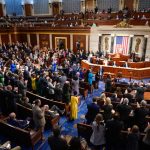
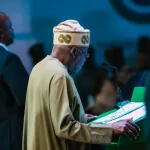

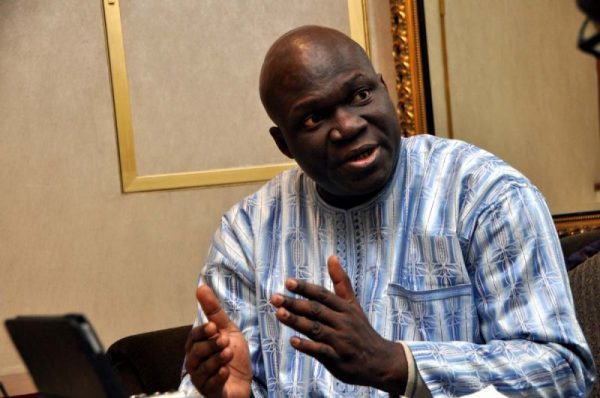

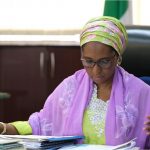





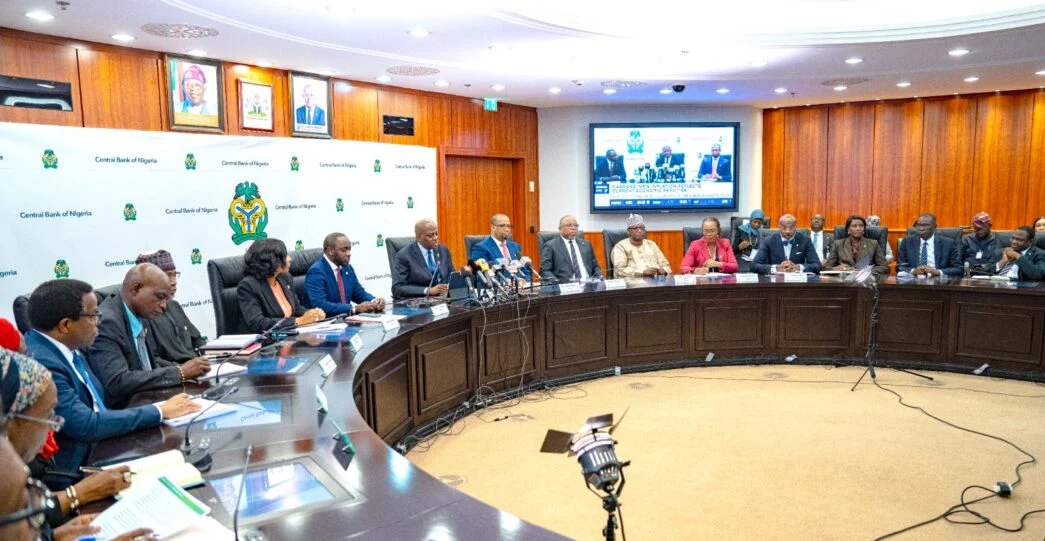
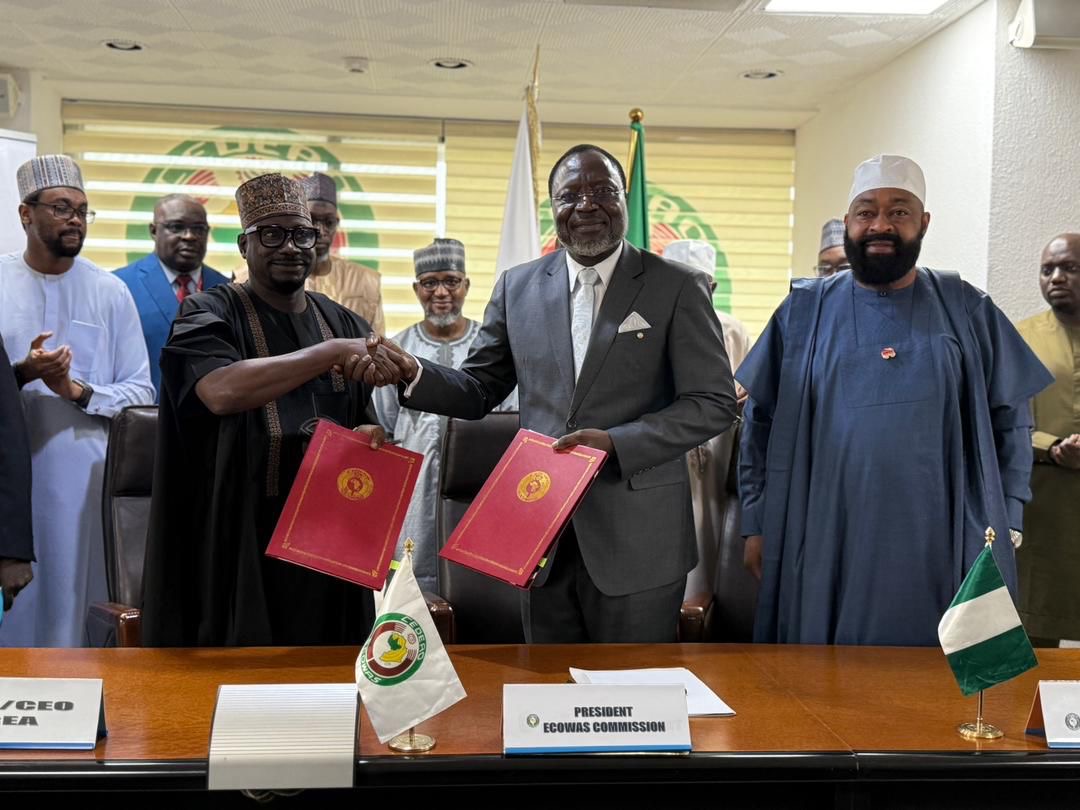
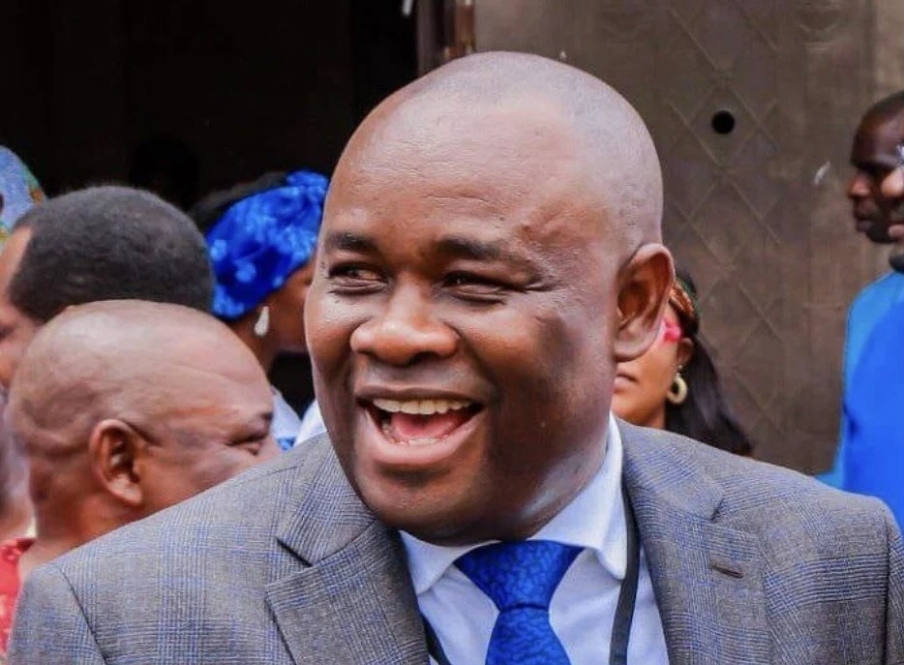
Leave a comment